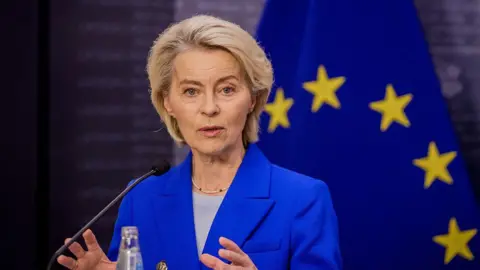In a parliamentary session rife with implications, Poland’s Prime Minister Donald Tusk successfully garnered a confidence vote for his pro-European Union government, following recent political turbulence from the presidential election. With 243 votes in favor and 210 against, Tusk reinforced his coalition’s stability, despite losing the recent election to the Law and Justice (PiS) party's candidate, Karol Nawrocki.
The vote, which Tusk deemed a formality given his coalition’s 12-seat majority in the Sejm (the lower house of parliament), serves to underscore his government’s mandate, even as Nawrocki is expected to pose multiple challenges, particularly with his veto power over legislation. Commentators suggest that the confidence vote was an opportunity for Tusk to demonstrate that his coalition remains poised to govern effectively, despite its recent electoral challenges.
Before the vote, Tusk addressed the assembly, expressing awareness of heightened challenges ahead due to Nawrocki's election. He emphasized his government's responsibility in navigating the difficult landscape ahead, citing the words of tennis player Iga Swiatek about tenacity. Tusk's coalition has faced legislative hurdles, particularly with a conservative president who has historically utilized vetoes against progressive policies, notably those concerning women’s reproductive rights and the independence of the judiciary.
His government’s achievements, according to Tusk, include increased defense spending and a commitment to Poland's role on the European stage through recent treaties, notably with France. In response to potential opposition, Tusk remains resolute, declaring that he is committed to advancing Poland's interests, while also indicating an upcoming cabinet reshuffle in July.
As Poland embarks on a new chapter under a challenging presidency, the focus remains on whether Tusk can adapt and deliver on the pressing issues facing the nation in the years to come. Meanwhile, he received a standing ovation from his supporters, signaling a temporary rally around his leadership amid ongoing political friction.



















